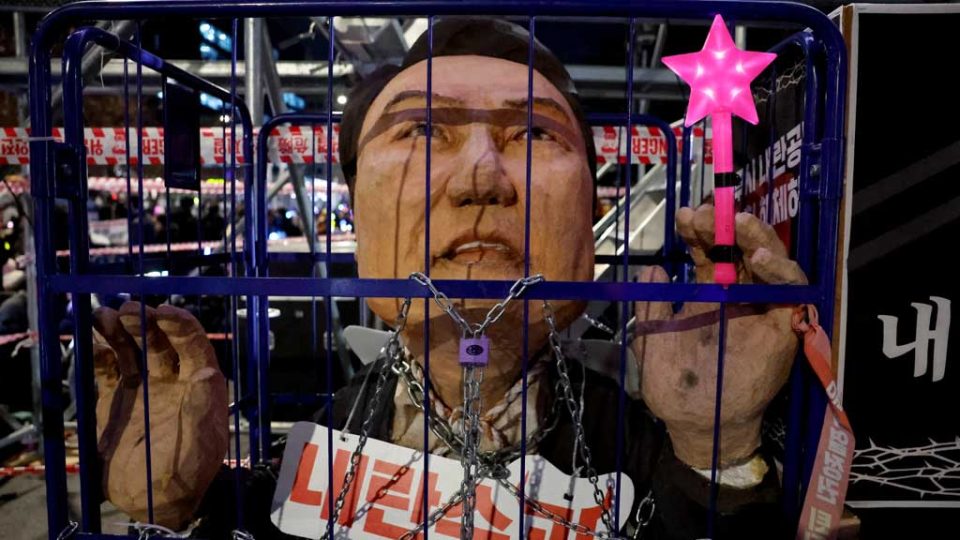South Korea’s parliament has voted to impeach President Yoon Suk Yeol following his brief martial law declaration earlier this month, which has created significant political chaos in the country.
The National Assembly approved the impeachment motion with a vote of 204-85. Following the delivery of the impeachment document to Yoon and the Constitutional Court, his presidential powers and duties will be suspended. The court has up to 180 days to decide whether to uphold the impeachment or restore his powers. If Yoon is ousted, a national election to choose a successor must occur within 60 days.
This vote marks the second attempt to impeach Yoon, as he previously survived a motion when most ruling party lawmakers boycotted the voting process. However, growing public protests against Yoon led some members of the People Power Party to shift their stance and support the impeachment in subsequent votes.
For the past two weeks, tens of thousands of citizens have regularly gathered in Seoul, demanding Yoon’s removal and arrest. Protesters have been vocal, chanting slogans, singing, and waving K-pop light sticks, while smaller groups of Yoon’s conservative supporters have also rallied, opposing the impeachment efforts. Both gatherings have remained largely peaceful.
Yoon’s imposition of martial law was the first in over 40 years and lasted only six hours, yet it has created significant political turmoil, disrupted diplomatic activities, and unsettled financial markets. The National Assembly unanimously voted to overturn the decree shortly after its announcement.
Before the martial law order, Yoon deployed military and police forces to parliament to disrupt the impending vote on the decree, although they withdrew when the parliament rejected it. No major violence transpired.
Opposition parties have accused Yoon of rebellion, citing legal provisions that classify attempts to undermine established state authority as insurrection. They assert that a president can only declare martial law during wartime or in absolute emergencies and cannot suspend parliamentary operations under such circumstances.
The impeachment motion stated that Yoon “committed rebellion that harms peace in the Republic of Korea by instigating a series of riots.” It accused him of endangering the National Assembly and the public through his mobilization of military and police forces.
In a passionate speech on Thursday, Yoon dismissed the rebellion accusations, framing his martial law order as a legitimate act of governance. He labeled the opposition Democratic Party as a “monster” and “anti-state forces” that sought to undermine the government’s budget and impeach top officials. “I will fight to the end to protect our constitutional order and the future of the Republic of Korea,” he declared.
Democratic Party leader Lee Jae-myung condemned Yoon’s remarks as a “mad declaration of war” against his own people.
The Democratic Party and five other opposition groups hold 192 seats in the 300-member unicameral parliament but fell short of the two-thirds majority required for impeachment, relying on support from ruling party lawmakers.
Currently, Yoon is banned from leaving South Korea as law enforcement investigates whether he and others involved in the martial law declaration committed rebellion, abuse of power, and other offenses. If convicted, a leader accused of rebellion could face severe penalties, including the death penalty or life in prison.
Although Yoon enjoys presidential immunity from criminal prosecution, this does not cover allegations of rebellion or treason. Consequently, he could face investigation, arrest, or indictment regarding his martial law declaration, although observers are skeptical authorities will act forcefully due to potential clashes with his presidential security service.
Several high-ranking officials, including Yoon’s defense minister and the police chief, have already been arrested in connection with the martial law case, while other senior military and government officials are also under investigation.
Credit: ABC News




